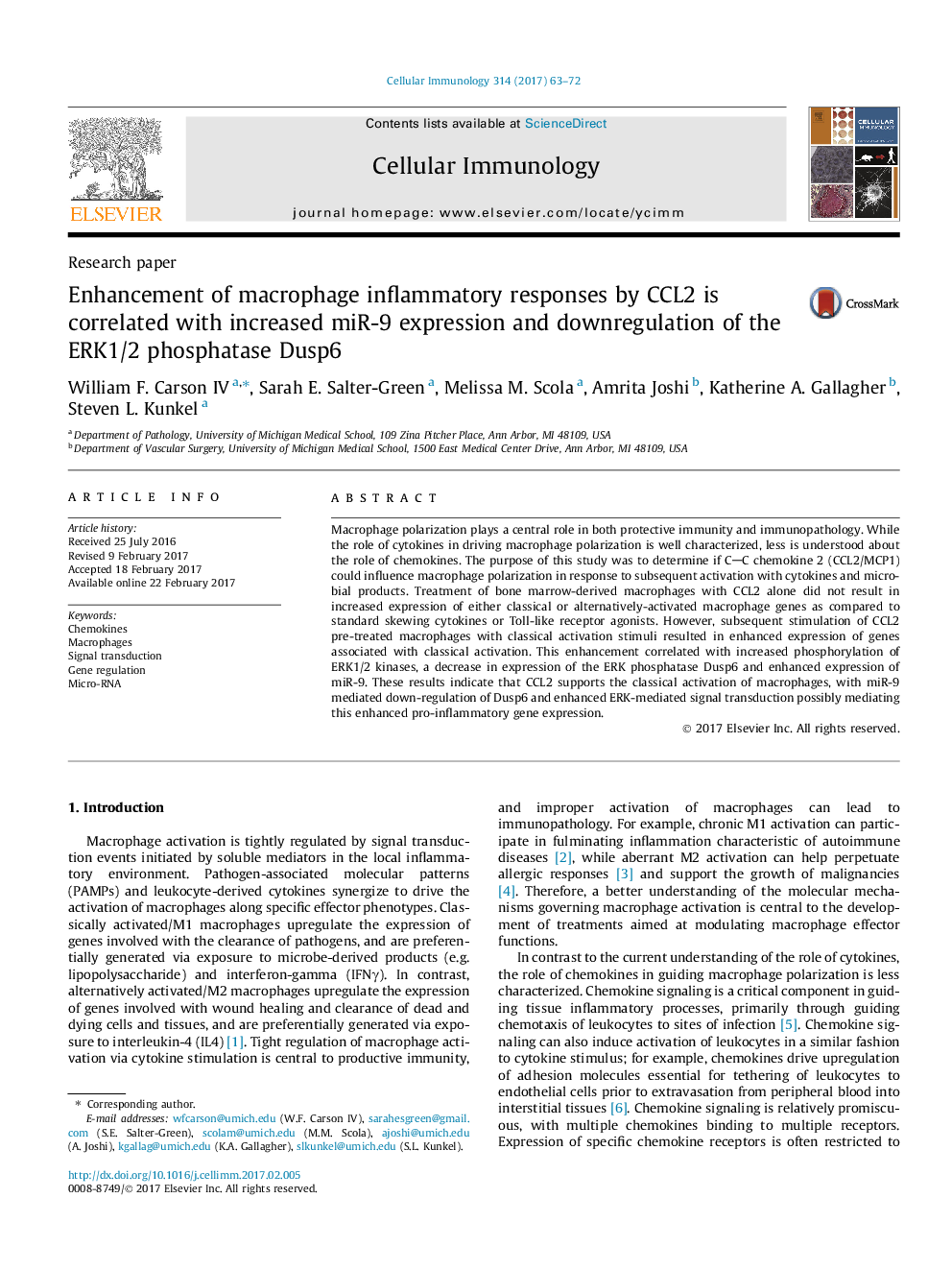| Article ID | Journal | Published Year | Pages | File Type |
|---|---|---|---|---|
| 5530656 | Cellular Immunology | 2017 | 10 Pages |
â¢The CC chemokine CCL2 enhances macrophage responses to pro-inflammatory stimuli.â¢CCL2 enhances ERK signal transduction in classically activated macrophages.â¢CCL2 suppresses macrophage expression of the ERK phosphatase DUSP6.â¢CCL2 increases macrophage expression of miR-9.
Macrophage polarization plays a central role in both protective immunity and immunopathology. While the role of cytokines in driving macrophage polarization is well characterized, less is understood about the role of chemokines. The purpose of this study was to determine if CC chemokine 2 (CCL2/MCP1) could influence macrophage polarization in response to subsequent activation with cytokines and microbial products. Treatment of bone marrow-derived macrophages with CCL2 alone did not result in increased expression of either classical or alternatively-activated macrophage genes as compared to standard skewing cytokines or Toll-like receptor agonists. However, subsequent stimulation of CCL2 pre-treated macrophages with classical activation stimuli resulted in enhanced expression of genes associated with classical activation. This enhancement correlated with increased phosphorylation of ERK1/2 kinases, a decrease in expression of the ERK phosphatase Dusp6 and enhanced expression of miR-9. These results indicate that CCL2 supports the classical activation of macrophages, with miR-9 mediated down-regulation of Dusp6 and enhanced ERK-mediated signal transduction possibly mediating this enhanced pro-inflammatory gene expression.
Graphical abstractDownload high-res image (61KB)Download full-size image
